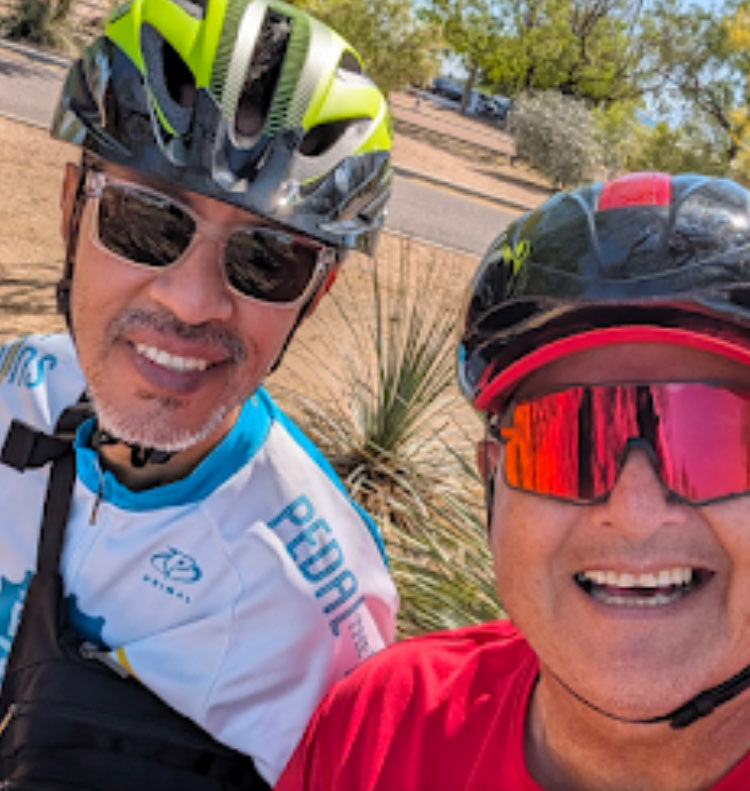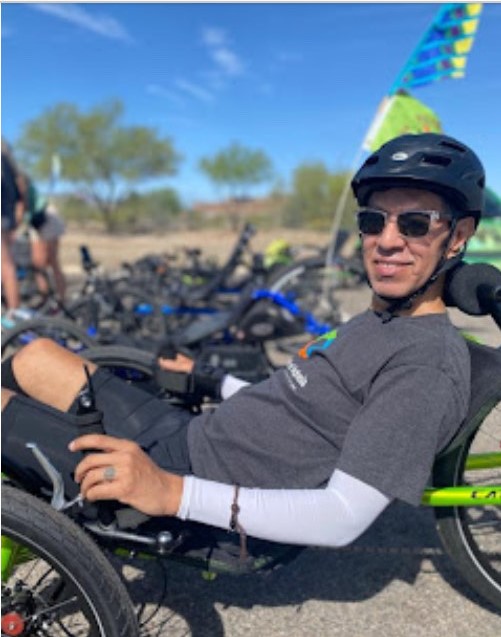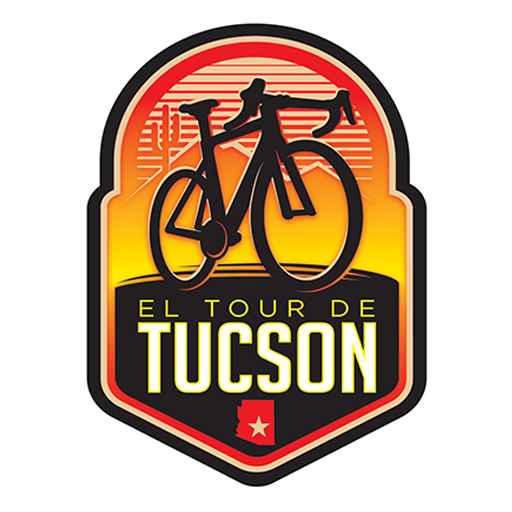The mission of the Homeless ID Project is to empower individuals and families to overcome…
Tucson Spokes, Friends of Aphasia help stroke survivors gain confidence, mobility and speech back; they are big part of El Tour de Tucson
My name is Andy Ortiz, and I am a native Tucsonan. I’m also a stroke survivor. November 17th marks my 4-year stroke-versary. When I first had my stroke, I couldn’t drive. So, I started going for walks, little by little, until I was able to walk really well. Since I couldn’t drive, I needed a way to get around and started riding a bike. Before my stroke, I had a bike but I didn’t ride it. Eventually, I was biking a lot.
Fast forward: my friend, Rona Howard, invited me to ride with Tucson Spokes on Fridays. I know Rona from Friends of Aphasia, where people with aphasia meet in small group sessions to practice their communication skills. Aphasia is a communication disorder that robs individuals of their ability to speak, understand, read, and write. It is caused by damage to the language areas of the brain. Typically, it results from a stroke, but it can also be caused by a traumatic brain injury, a brain tumor, a brain infection, or brain degeneration.

Tucson Spokes is a group of riders that come together each week on bikes and trikes, including adapted trikes. One thing that Tucson Spokes and Friends of Aphasia have in common is that most of the members have experienced a stroke or traumatic brain injury (TBI). And several of us are preparing for El Tour de Tucson. This will be my third time riding in El Tour.
I love riding with Tucson Spokes. Often, at the start of a ride, I will help people get their trikes out of their cars and set them up. Trikes can be heavy and awkward, and many of the riders have a weak arm or leg from their strokes or brain injuries. I am lucky; I am just a bit numb on my right side from my stroke. During the ride, I’ll stay in the back of the pack to make sure everyone is doing good. I’m the caboose! I also get to talk with everyone and can help out if anyone needs it.
Often, we go out for lunch after our rides. One of our favorite places to stop is Ren Coffeehouse. It is so fun to hang out with the other riders, and we get to practice our communication skills there, too!
You have to meet Joe—Joe is amazing! I met Joe at Friends of Aphasia. When we first met, he couldn’t talk, and he had a lot of difficulty walking because his stroke caused weakness in his right leg. He mentioned one day in our aphasia groups that he used to ride a bike but that he couldn’t anymore because of his stroke. When we told him about trikes and Tucson Spokes, you could see him light up. He and his wife, Patty, met the group for a ride one day, and once Joe started, he caught on right away. Seeing Joe ride was awesome: you could just see it on his face, being on a bike is FREEDOM! Joe and I ride together with Tucson Spokes and on our own rides, too. Sometimes we ride up to 60 miles! This year will be Joe’s first time riding in El Tour!!!
I’ll also be helping at the Friends of Aphasia table at the El Tour Expo. I love teaching people about aphasia. Unfortunately, so few people know what aphasia is even though it affects more than two million people in the US.
I had such a good time riding in El Tour de Tucson with our Friends of Aphasia team the past two years, and I’m excited to do it again this year. I’m especially excited to experience it with Joe this year on his first ride in El Tour.
MEET JOE
My name is Joe and I suffered a stroke two years ago, which left me with severe aphasia and right sided weakness. I learned about adaptive cycling shortly after I started attending speech therapy at Friends of Aphasia. Rona, who is also a member of Friends of Aphasia, invited me to try it out, and introduced me to Tucson Spokes, the cycling group she founded.

Through both groups, I have made wonderful new friends and found an incredible support system. The progress I have made, which saw me practically being carried off of my trike the first time I rode, to now being able to get myself in and out of my trike mostly independently is, in great part, thanks to their support and encouragement.
The same can be said about the progress I have made in the speech department, Friends of Aphasia gives me the tools I need, and Tucson Spokes allows me to practice communicating in a safe, understanding environment.
I am thrilled to participate in El Tour de Tucson this year. It is a goal I have been training for the whole year, with the help of my friends at both Tucson Spokes and Friends of Aphasia. I am excited, and honored to ride along them to celebrate all the progress I have made, and bring awareness to all the good both organizations do for people like me.
